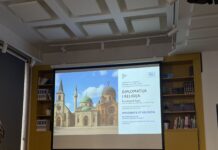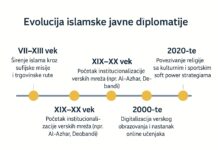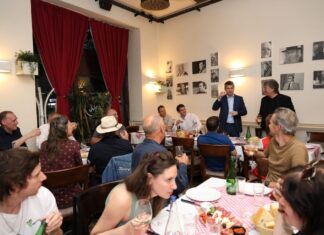We have asked several foreign ministries to answer some questions about their #DigitalDiplomacy. Here’s a guest post from the Foreign Ministry of Spain.
 We are just now beginning to understand the drastic changes that the digital revolution is bringing about in the way diplomacy is conceived and carried out. The first thing to change was the way we communicate. Despite the fact that digitalisation of diplomacy started only some years ago, it is sustaining permanent evolution. These ongoing changes affect the agenda, internal procedures, as well as decision making processes.
We are just now beginning to understand the drastic changes that the digital revolution is bringing about in the way diplomacy is conceived and carried out. The first thing to change was the way we communicate. Despite the fact that digitalisation of diplomacy started only some years ago, it is sustaining permanent evolution. These ongoing changes affect the agenda, internal procedures, as well as decision making processes.
It additionally affects our use of social networks in a way that involves regular revision of strategies and decentralisation. The social media of preference is the one which better adapts to the local needs. We, as MFA civil servants, need to keep track of the advantages and disadvantages of different platforms and be able to use them for public purposes.
The first objective was to jump into digital diplomacy with a global presence, which entails giving our offices liberty to choose their preferred platform. Recently, a number of Spanish diplomats provided their first-year experiences with said platforms to contribute to a book on digital diplomacy. The comments of my colleagues at different postings were coherent: while Facebook is better to keep one’s diaspora connected to the Embassy or Consulate on a regular basis, we need Twitter as the best and most rapid way to spread information in an emergency. You will have 1,500 Retweets in approximately 20 minutes and more than 7,000 a little later if the information posted is important. As was the case with the emergency contact numbers during the recent Brussels attacks.
#Bruselas, si tú o tu familia estáis afectados directamente, llama al teléfono de Emergencia Consulado España en Bruselas +32 2 509 87 46
— Exteriores (@MAECgob) March 22, 2016
Twitter has proven to be the best platform for multilateral diplomacy too, but for our cultural offices, or development cooperation aid, Facebook is a very important channel to explain the projects, activities and achievements that will otherwise escape the broader audiences.
Recently we also adventured on Instagram, and developed a style handbook for all our offices abroad that are using Instagram accounts. In some regions or countries, our embassies prefer Instagram and some cases, such as the Embassy of Spain in Kuwait, solely use this platform.
We have opted to have a structured scheme based on team work. Instead of trying to encourage star ambassadors – who would draw a lot of attention – we encourage each and every embassy to develop, sustain and feed the social accounts of their choice. We wanted the whole diplomatic team to get used to digital diplomacy. This was a challenging task, and I dare say our best achievement.
Rather than pointing a campaign as our most well-known, and prior to that, I appreciate the steady growth of our accounts as a whole. It was not an easy task because instead of delegating the task of online presence to the forward looking diplomats who were on board, or hiring an expert communication team in Madrid to do the ice-breaking, Spanish diplomats were engaged as a whole, and are learning to produce local and regional impact with their own campaigns.
It was done like this because we were convinced that digital diplomacy will develop to be much more than just public diplomacy or online consular service: We see it as the beginning of a deeper transformation for MFAs, and for that we needed everyone on board. The best example of this scheme put in practice was the creation of 28 hubs for digital communication. Spanish hubs are somehow different to hubs created by other diplomatic services as Spanish hubs produce videos, pieces of information, infographics and “gifs” adapted to their specificities.
We send them the funds and they produce those pieces of visual contents locally, with results that sometimes surprise us back home in Madrid. The experience proves to be truly enriching, as a video produced in Tokio has a different music, rhythm and flavour than the one on a similar subject produced in Canberra or Montevideo. We also encourage them to talk to the other Spanish missions in the region and think of issues of common interest; and so, our hub in Western Africa may be focusing on the humanitarian situation in the region while in China, at the same time, the contents may be related to the 400 Anniversary of Cervantes and the learning of Spanish language, or while Lima is explaining to the younger audiences how to take advantage of the different scholarships available to study in Spain.
That gives us a lot of variety and flexibility, and that is, in the end, what we value most.
By Consuelo Femenía (@ConsueloFemenia), Ambassador, Special Advisor for Digital Diplomacy at the Spanish Foreign Ministry (@MAECgob @SpainMFA).













